As the son of lifelong missionaries, Calvin University’s new president, whose inauguration is Wednesday, continues a proud Christian Reformed Church tradition of Dutch Calvinism.
Wiebe Boer, who arrived on the Grand Rapids, Michigan, campus, the last week in June, is the university’s 12th president, succeeding Michael Le Roy, who stepped down after a 10-year term.
A Calvin graduate himself, Boer has lived 30 of his 48 years in Nigeria, where his parents — both born in the Netherlands — served as missionaries.
He will lead the 146-year-old liberal arts university at a difficult point. Over the past decade, the university’s faculty roster and undergraduate admissions have fallen sharply. Its total enrollment of 3,256 students is down from 4,008 in 2012. Last year it eliminated five majors and seven minors, including Chinese, Dutch and German.
In addition, evangelical colleges across the country have seen a widening rift on social and political issues; Calvin is no exception.
Your tax-deductible gift helps our journalists report the truth and hold Christian leaders and organizations accountable. Give a gift of $30 or more to The Roys Report this month, and you will receive a copy of “Hurt and Healed by the Church” by Ryan George. To donate, click here.
The university, which is solely owned by the Christian Reformed Church, is walking a tightrope on sexual orientation.
This summer the Christian Reformed Church in North America voted at its annual synod to codify its opposition to homosexual sex by elevating it to the status of confession, or declaration of faith. That put its faculty, who must sign a document saying their beliefs align with the church’s historic creeds and confessions, into a difficult spot.
Some faculty have since asked for a “gravamen,” which entitles them to formally declare they struggle with a confessional claim. It’s not yet clear whether the university will approve those individual disagreements with the church’s confession.
Calvin occupies a more center-left position among evangelical colleges. While it forbids premarital sex and defines marriage as between a man and a woman, it allows a support group for LGBTQ students on campus. In the 2020-21 academic year, the school allowed a bisexual student to be elected as student body president.
Still, earlier this year it severed ties to a campus-based research center after one of its employees married a same-sex partner.
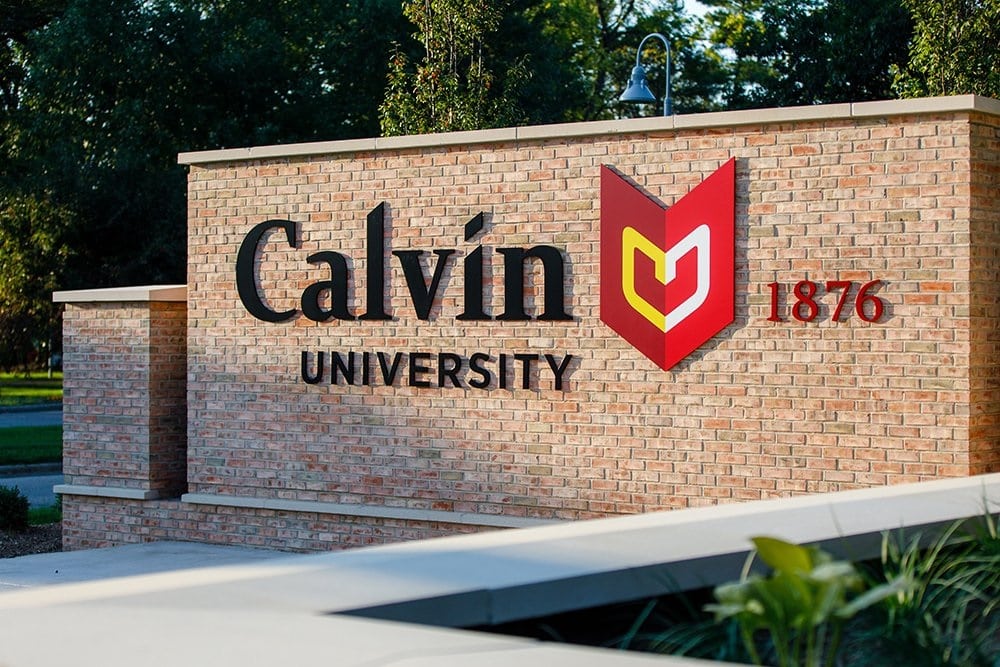
Boer said Calvin will continue to be hospitable to its LGBTQ students.
“I don’t want to be the president of an institution that isn’t welcoming to everybody,” Boer said.
Boer who has a Ph.D. in history from Yale University, and most recently worked as head of Shell of Nigeria’s renewable energy division, does not have a background in academic administration.
But he said he was intrigued by the position after reading an email to alumni.
“They were looking for someone who understands the Reformed tradition but has a global outlook and is entrepreneurial and innovative,” Boer said. “I thought, this kind of sounds like me.”
Boer said he wants to build on the university’s newest initiatives — a new business school with both undergraduate and graduate degree programs, as well as a new school of health. He is also proud to move the institution toward environmental sustainability. It just signed a contract with a company that will convert the campus’s daytime energy use to solar.
He said he wants to build on the school’s diversity — 17% of its students consider themselves ethnic minorities and another 12% are international students.
Boer, a huge soccer fan, wrote his Ph.D. dissertation on the history of football in Nigeria. And his Twitter feed is filled with tweets supporting Calvin’s various NCAA Division III athletic programs and athletes.
“He’s a breath of fresh air,” said Kristin Kobes Du Mez, a professor of history at Calvin University and one of its star faculty members. “He has a deep appreciation of the best of what Calvin has been and could be — its academic mission, its global presence, its Dutch Reformed tradition. His attitude is, we do incredible things here, let’s go do it.”
 Yonat Shimron is a national reporter and senior editor for Religion News Service.
Yonat Shimron is a national reporter and senior editor for Religion News Service.




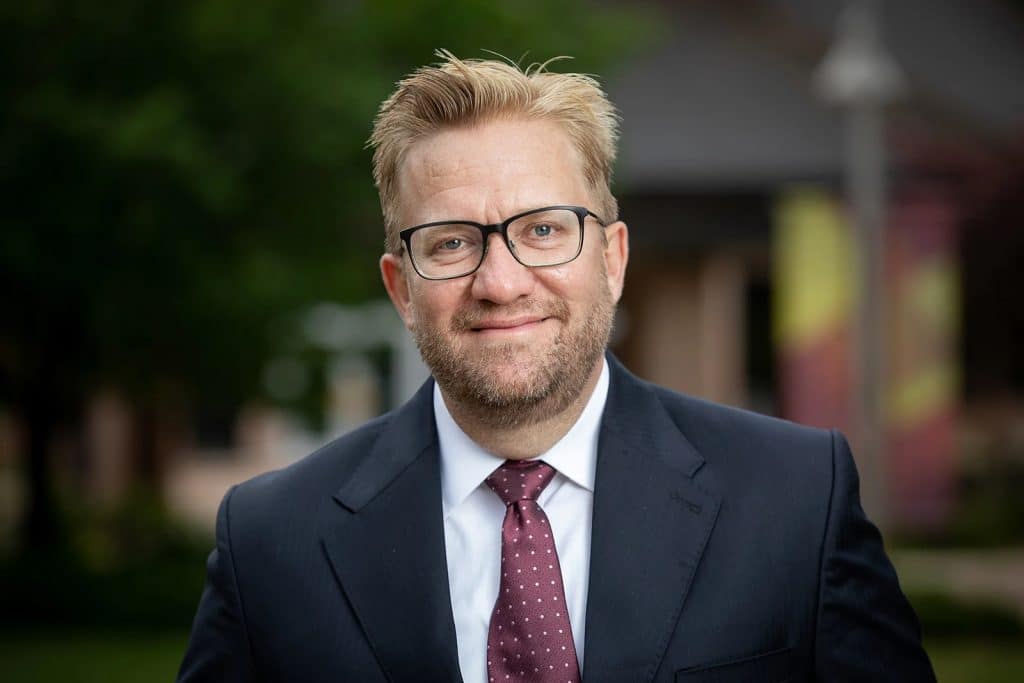

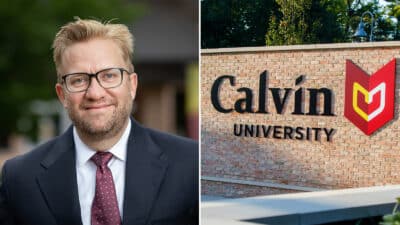
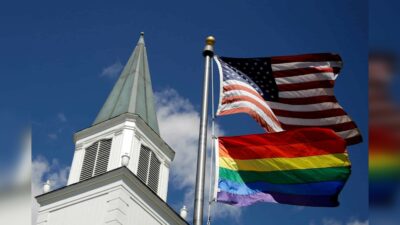

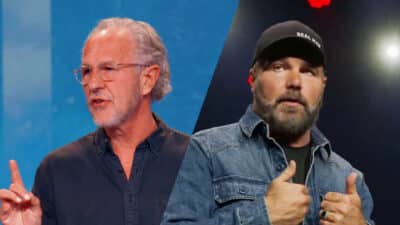
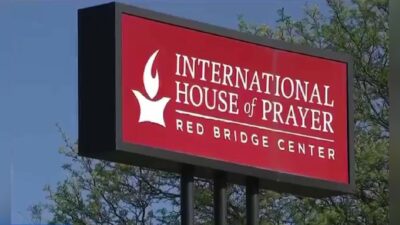
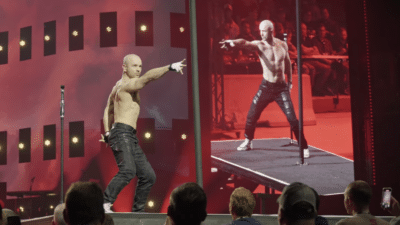

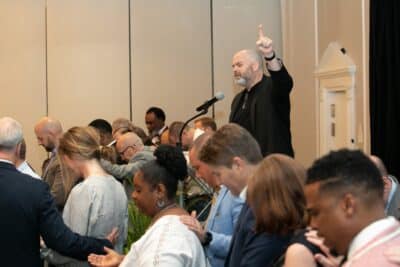






5 Responses
The time is ripe for evangelicals to reconsider their investment in private universities and colleges. When an 18-19 year old enters graduate level liberal arts education, they need to look at issues as widely as possible. This means that they SHOULD be exposed to worldly thinking and philosophies, while simultaneously having Christians there to guide them through it.
The solution would be to have evangelicals attend secular universities and be exposed to the full range of worldly thinking and philosophies. But at the same time, have organised evangelical groups on campus to provide Bible teaching, small group ministries and mentoring.
This is the model used in Australia. Evangelicals in Australia don’t have any major universities to speak of. If an evangelical wants higher education, they go to a secular, state-run university. At each university, though, is a ministry of AFES (Australian Fellowship of Evangelical Students) as well as other Christian groups. This process has helped strengthen Australian evangelicals. Exposure to worldly thinking and philosophies at the base level, while being mentored through it, has helped create more mature, academically minded and yet still solidly Biblical Christians.
Note that this process does not include theological colleges and seminaries, which are kept separate. People who enter evangelical ministry attend evangelical training colleges that employ evangelical academics.
I myself studied English Literature and History at a secular university. I’m still a Christian, and I can more effectively critique worldly thinking because I already have knowledge of it.
(PS I know that Judson University financially supports the Roys Report. But please keep this comment in place anyway as it is important)
I completely agree! As a Christian who went to a secular university, I am grateful for the ways in which my worldview was challenged. I studied other “holy texts”, world cultures, social stances and political views, and grew strong in my faith as I learned how to debate and discuss WHY I believe what I do.
Too many Christian schools are little more than isolationist bubbles to “prevent” any outside thinking or views from entering. We even see this in today’s school board chaos: “don’t teach my child anything I disagree with!” That is not realistic, nor does it make for an informed, effective witness. It makes for parents who are too scared for their kids to disagree with them (which is prideful, manipulative and controlling), and kids who cannot think for themselves (I have actually heard, “I’m a Republican because my parents said real Christians are conservatives” come out of the mouth of a 20 year old). I shake my head at how this will play out in 20 years.
You want to change the world? Get out there in it – just don’t be “of” it.
Maybe that works in Australia, but here in the U.S. only 6% of adults have a biblical worldview (per a Barna survey). Most evangelicals I know do not have a biblical worldview, they may believe in Jesus but that’s about it. Most evangelicals going to a State university get crushed philosophically speaking, as they do not have a Christian worldview to begin with or their worldview has not been adequately developed.
Going to a State University typically enforces a materialistic or pagan world-view. How is an 18 year old student going to compete with a professor who philosophically is a materialist, and who has been teaching at the university level for 30 years.
Christian Colleges are essential to maintain a Christian framework from a scholarly viewpoint. We do not want to end up like Europe (or Australia), where basically only a very small percentage of the population goes to church.
The classic example is Ben Sasse an evangelical, is leaving the U.S. Senate to become president at the University of Florida. Sure enough the LBGTQ crowd and other philosophically like-minded people are having wild protests.
We are better off with a variety of different kinds of institutions of higher education – Christian and secular, small and large, liberal arts and technical, and so on. Alphacrucis University College, Sydney, is the first full accredited Christian general undergraduate institution in Australia. They are doing good work and deserve goodwill and support.
It would be a mistake to think that students attending Christian schools are not learning about alternate viewpoints. Certainly, for students at Wheaton College, where I teach, they are exposed to a wide variety of non-Christian perspectives, such as the paganism of Plato and Aristotle, the utilitarianism of Bentham or Mill, the philosophies of Confucius and Lao Tzu, secular feminism, Marxism, Nietzschian philosophy, deconstructionism, and so on. What is different is that, as students learn about these philosophies and theories, they also have expert guides to help them understand how scripture and Christian theology intersects/interacts/diverges with and from these points of view. A Christian education, from a solid Christian college, is not a safe, sheltered education. It’s an education in which all the truths of the world are embraced as God’s truth and students learn to articulate their faith in richly subtle, nuanced, and thoughtful interaction with knowledge from everywhere.